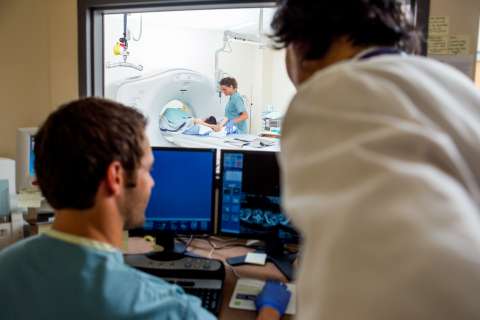Ronald Reagan UCLA Medical Center will be one of more than 100 hospitals across the United States and other countries studying whether emergency treatment using a protein made by the body can stop brain bleeds and improve outcomes.
FASTEST is a research study involving patients who have had bleeding in the brain, also called intracerebral hemorrhage (ICH). ICH occurs when a weakened blood vessel in the brain breaks, and bleeding accumulates in the brain. Most of this bleeding occurs within a few hours of onset of symptoms.
The brain injury from ICH is usually very severe. More than four in ten people with ICH die within a month, and only one in five can independently care for themselves after six months. There is currently no treatment for ICH that is scientifically proven to improve outcome.
The FASTEST research study is being done to determine if recombinant Factor VIIa (rFVIIa), a protein that the body makes to stop bleeding at the site of injury to a blood vessel, can slow bleeding in the brain and improve outcome. rFVIIa is approved for treatment of bleeding in patients who have inherited lack of clotting factors but is not approved for treatment of ICH.
For the new study, patients suffering brain bleed will be randomly assigned to receive either rFVIIa or a placebo (no active ingredient). Medical care otherwise will be identical for the two treatment groups, including close management of blood pressure and care within an intensive care unit. The results of the study will help doctors discover if rFVIIa improves outcome in patients with bleeding in the brain.
Some patients will be enrolled without consent if a family member or representative is not rapidly available. Because the study may affect members of the community, investigators welcome feedback and questions before it begins. For more information or to decline participation in this research study, please visit https://nihstrokenet.org/fastest/community-resources or contact research study staff at [email protected]. The Primary Investigator of the study is:. May Nour, MD, PhD and the Study Coordinator is Ileana Grunberg, RN.




